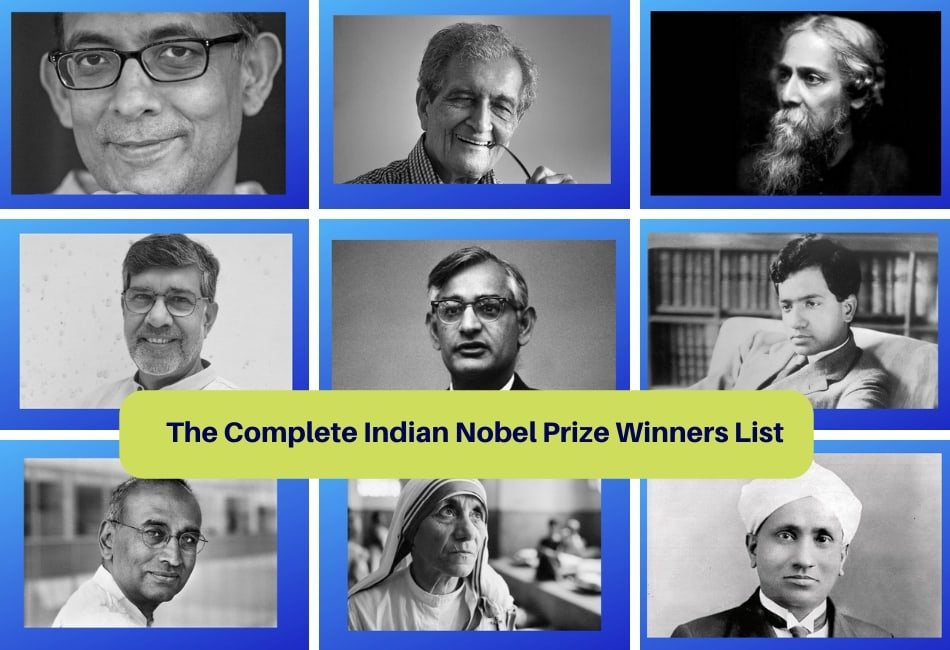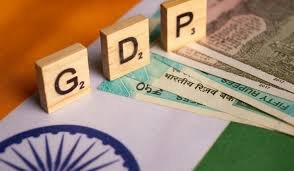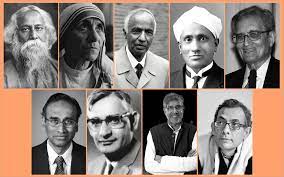Indian Nobel Laureates: Contributions to Humanity and National Pride
Nobel Laureates are exceptional individuals who have made significant contributions to various fields, leaving a lasting impact on humanity. India, a country known for its rich heritage and talent, has produced remarkable minds that have earned this prestigious recognition. In this article, we will delve into the inspiring stories of Indian Nobel Laureates and their exceptional achievements, which serve as a beacon of national pride.

Why this News is important:
Promoting Cultural Heritage: The recognition of Rabindranath Tagore’s literary brilliance highlights the significance of India’s rich cultural heritage, encouraging students to take pride in their roots and promote Indian arts and literature.
Advancing Scientific Research: C.V. Raman’s Nobel Prize emphasizes the value of scientific research and innovation. Aspiring scientists and researchers can draw inspiration from his achievements and contribute to the advancement of knowledge.
Humanitarian Service: Mother Teresa’s Nobel Peace Prize underscores the importance of humanitarian service and compassion. Aspirants for civil service positions can learn from her dedication to serving the needy and work towards building a better society.
Historical Context:
The history of Indian Nobel Laureates dates back to 1913 when Rabindranath Tagore became the first Indian to win the Nobel Prize. Since then, several exceptional individuals have continued to bring glory to the nation by earning this prestigious award in various fields.
Key Takeaways from “Indian Nobel Laureates”:
| Serial Number | Key Takeaway |
|---|---|
| 1. | Indian Nobel Laureates have made significant contributions to humanity through their work in diverse fields. |
| 2. | Rabindranath Tagore was the first Indian Nobel Laureate, setting the precedent for future achievements. |
| 3. | C.V. Raman’s groundbreaking research in physics brought India global recognition in the scientific community. |
| 4. | Mother Teresa’s dedication to humanitarian work remains an exemplary model of service and compassion. |
| 5. | Amartya Sen’s economic research continues to influence policymakers, addressing issues of poverty and inequality. |
Important FAQs for Students from this News
Q: Who was the first Indian to be awarded the Nobel Prize?
A: The first Indian to receive the Nobel Prize was Rabindranath Tagore, who won the Nobel Prize in Literature in 1913.
Q: What was the field of study for C.V. Raman’s Nobel Prize?
A: C.V. Raman was awarded the Nobel Prize in Physics in 1930 for his work on the scattering of light, known as the “Raman Effect.”
Q: Which Indian Nobel Laureate was recognized for her humanitarian work?
A: Mother Teresa, who was born in Albania and later became an Indian citizen, received the Nobel Peace Prize for her dedicated humanitarian service.
Q: What are the contributions of Amartya Sen to the field of economics?
A: Amartya Sen’s Nobel Prize in Economics (1998) acknowledged his contributions to welfare economics and social choice theory, addressing poverty and inequality.
Q: What did Kailash Satyarthi advocate for, and what did he receive the Nobel Prize for?
A: Kailash Satyarthi advocated for the eradication of child labor and children’s rights. He was awarded the Nobel Peace Prize in 2014 for his efforts in this area.
Some Important Current Affairs Links














